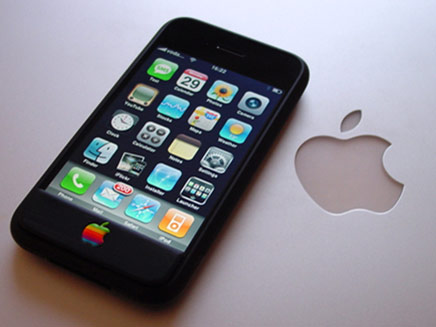The first major company to tackle the compatibility problems between online search and smart mobile phone devices, was of course Google, which recently released the Search-by-Voice app, albeit with somewhat of a delay. Here are some other search options that you can employ on your iPhone – free ones.
The first option that you must be made aware of is a nifty piece of software developed by Proximic, application called Proximic Agents. This is how it works: whenever you want to do complex search queries, you do not have to type them in; simply select the bit of text you want to search and go ahead with it. It is what you might call point-and-click search. The interesting part is that Proximic does not search for certain keywords, it looks for patterns in the text you selected and according to said patterns it returns relevant search results. For the time being Proximic Agents are available (for free) just for the iPhone, but in the near future similar applications will be developed to run on any smart phone.
The second iPhone search option I want to draw your attention to is somewhat similar to the Google Search-by-Voice app, in that it also uses audio input to execute a search query. The app in question, which has been developed by Vlingo, company better known for their transcription services, does much more than simple online searches; it also lets you dial-by-voice and update your Twitter or Facebook status. There is one other difference between the Vlingo and the Google Seach-by-Voice app: Vlingo lets you choose which search engine to use, Google or Yahoo.
The third free piece of software that you can employ to perform search-by-voice search and dialing is the Melodis Voice Dialer 1.0. The name may be pretty much self explanatory, but this did not prevent the Melodis Corporation from posting a video demo of the app, which you can watch here.
The problem with any mobile device is the fact that the battery has a limited lifespan – you can only use them for a limited amount of time before having to pull out that charger cable. While some devices use the power of the wind or the sun to recharge themselves, have you ever heard of piezoelectricity? This is a process that transforms mechanical stress into electricity. In the case of mobile smart phones it could mean that recharging the device would be as simple as talking into it (which is already what the device was designed for). The technology is already being put to use, albeit at a different scale – some clubs in London and the Netherlands generate their own energy – well not the club itself, but the people shaking it on the dance floor.
If you would like to get Proximic Agents, a download location is available here.
If you would like to get Vlingo, a download location is available here.
If you would like to get the Melodis Voice Dialer, a download location is available here.
The first option that you must be made aware of is a nifty piece of software developed by Proximic, application called Proximic Agents. This is how it works: whenever you want to do complex search queries, you do not have to type them in; simply select the bit of text you want to search and go ahead with it. It is what you might call point-and-click search. The interesting part is that Proximic does not search for certain keywords, it looks for patterns in the text you selected and according to said patterns it returns relevant search results. For the time being Proximic Agents are available (for free) just for the iPhone, but in the near future similar applications will be developed to run on any smart phone.
The second iPhone search option I want to draw your attention to is somewhat similar to the Google Search-by-Voice app, in that it also uses audio input to execute a search query. The app in question, which has been developed by Vlingo, company better known for their transcription services, does much more than simple online searches; it also lets you dial-by-voice and update your Twitter or Facebook status. There is one other difference between the Vlingo and the Google Seach-by-Voice app: Vlingo lets you choose which search engine to use, Google or Yahoo.
The third free piece of software that you can employ to perform search-by-voice search and dialing is the Melodis Voice Dialer 1.0. The name may be pretty much self explanatory, but this did not prevent the Melodis Corporation from posting a video demo of the app, which you can watch here.
The problem with any mobile device is the fact that the battery has a limited lifespan – you can only use them for a limited amount of time before having to pull out that charger cable. While some devices use the power of the wind or the sun to recharge themselves, have you ever heard of piezoelectricity? This is a process that transforms mechanical stress into electricity. In the case of mobile smart phones it could mean that recharging the device would be as simple as talking into it (which is already what the device was designed for). The technology is already being put to use, albeit at a different scale – some clubs in London and the Netherlands generate their own energy – well not the club itself, but the people shaking it on the dance floor.
If you would like to get Proximic Agents, a download location is available here.
If you would like to get Vlingo, a download location is available here.
If you would like to get the Melodis Voice Dialer, a download location is available here.

























